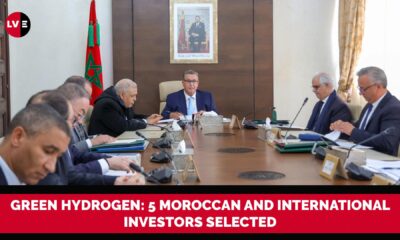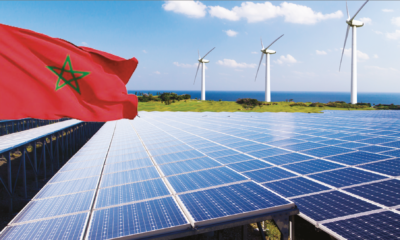Influences
Sustainable Aviation Fuels: Morocco Set to Become a Regional Energy and Aviation Hub

Sustainable Aviation Fuels (SAF) are considered a key lever in reducing emissions from the aviation sector. Although global SAF supply has surged by 1150% over the past three years, it still only accounts for 0.3% of global aviation fuel production as of 2024. So what are the barriers to large-scale SAF adoption? And what actions can accelerate its development?
These questions are at the heart of a new BCG study titled Sustainable Aviation Fuels Need a Faster Takeoff, based on insights from over 500 professionals across 207 aviation sector companies. Key findings include:
- A cautious industry:
Due to high costs, about two-thirds of surveyed companies are adopting a wait-and-see approach rather than positioning themselves as market leaders—slowing progress and economies of scale.
- A gap between ambition and readiness:
While 80% of companies are confident in meeting 2030 SAF targets, only 14% feel adequately prepared today.
- Two-speed investment:
Nearly half of commercial aviation players are investing more than 4% of their revenues in SAF. SAF project developers (financiers, energy firms) and aircraft/engine manufacturers are ahead. In contrast, airlines and airports lag behind with investments in the 1–3% range, often favoring fleet renewal over what they see as riskier SAF projects.
Morocco: A Strategic Asset for the New Green Aviation Era
Morocco has rare advantages: unmatched renewable energy potential, strong ambitions for green hydrogen, world-class international airport infrastructure, and a strategic location at Europe’s doorstep.
These factors could enable the Kingdom not only to meet its own SAF needs, but also to become a major regional supplier.
As Émile Detry, Managing Director & Partner at Boston Consulting Group Casablanca, explains:
“Morocco has all the ingredients to become a key player in clean aviation: competitive energy, strategic proximity to Europe, a rapidly growing industrial base, and—above all—the ability to anticipate major industrial shifts. Investing in SAF today means investing in the country’s energy sovereignty, green growth, and the creation of high-skilled jobs. Morocco can position itself as the green fuel leader of the region.”
Three Priorities to Accelerate Momentum
To turn potential into reality, BCG identifies three major levers:
- Unite efforts: build a coalition of public and private players—airlines, energy companies, institutions—around an ambitious roadmap, and introduce mandates similar to the EU to create a true SAF market.
- Launch concrete pilot projects: establish production units linked to Morocco’s main airport and logistics hubs, backed by strong international industrial partnerships.
- Create an attractive investment environment: implement clear incentives (carbon pricing, guaranteed offtake agreements, easier access to climate finance) to attract both private and public capital.
Being a First Mover: A Strategic Advantage
SAF production—especially from e-fuels (green hydrogen + captured carbon)—remains costly. But with new European mandates requiring airlines to use SAF, a historic window is opening.
Early movers will benefit from faster cost reductions, the ability to secure strategic market share, and long-term leadership in sustainable aviation.
About Boston Consulting Group (BCG)
Boston Consulting Group (BCG) partners with global leaders to tackle their most critical challenges and achieve transformational impact. Founded in 1963, BCG is known for its innovative approach and deep industry expertise. Present across Africa with nearly 600 professionals, BCG supports clients through complex transformations by leveraging diverse industrial and functional expertise, combined with advanced digital and human solutions.
Source: BCG Group












